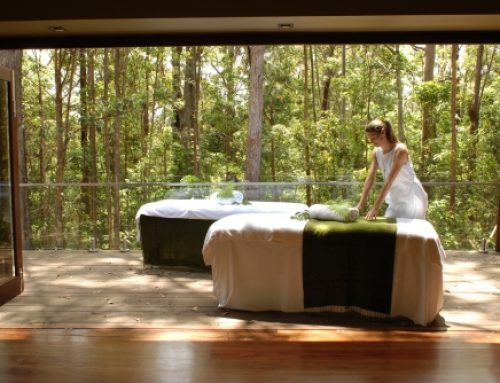Thanksgiving is a holiday that inspires generosity, charity and kindness. For the traveler, this festive feast may also stir altruistic desires to give back and help those who are less fortunate. Volunteering abroad is a great way to help local communities, learn about the country and gain some major karma credits.
But where do you start? If you’re looking to plan your own volunteer vacation, there are thousands of opportunities offered around the world, from environmental protection groups, to animal rights, archeological digs to organic farming, building wells to teaching children soccer. There’s truly something for everyone but, with all the options available, choosing the right one may be a little confusing.
Having dabbled in global volunteer work myself, I offer the following step-by-step guide to finding your perfect placement:
Step 1 – To determine what volunteer opportunity is best for you, ask yourself the following questions:
- How much time do I have to volunteer, a few days, a week or a few months?
- What cause is important to me?
- What country do I want to visit?
- What’s my budget?
- What level of support do I want while in the country?
- Do I want everything organized and taken care for me or do I want to do things independently?
Step 2 – Once those questions are answered you’ll have a better sense of your time commitment, needs, interests and how much you’re able to spend. Then it’s time to look for actual volunteer opportunities. Yay! Here are a few organizations I like.
Elephant Nature Park
Located on the waters of the Mae Taeng River, Elephant Nature Park in Northern Thailand, is a refuge for domestic-working Asian elephants, most of whom have been rescued from abuse. Volunteers who want to get up close and personal with the elephants can actually stay on the premises. Day to day work duties include helping rehabilitate the rescued baby elephants, building new fences and preparing fruit for their daily feeding. There are many companies in Thailand that market elephant treks to tourists. Sadly, many of these places don’t treat their animals very well, so for travelers who really want to see elephants, this conservation project is a great alternative to the often exploitative trekking scene. Check out http://www.elephantnaturefoundation.org
Cross Cultural Solutions
Cross Cultural Solutions has programs all over the world, from taking care of children in day-care centers to teaching English, to promoting female empowerment in rural Tanzania, to working with kids in Morocco.
Volunteer programs are offered year round, and people usually stay 1-12 weeks. The program fee starts at around $2700 for two weeks and includes accommodations, meals, in country transportation, learning activities, pre-departure support and insurance. Airfare isn’t included in the fee. They say that only 10% of the CCS program fee goes towards administrative expenses, meaning that a lot of the money generated from these programs is going back into the community. Bonus!
www.crossculturalsolutions.org
Biosphere Expeditions
At Biosphere Expeditions volunteers are at the center of wildlife study, partnering them with scientists out in the field. The projects are constantly changing but past projects include snow leopard research, cheetah conservation in Zambia, jaguars in Brazil, parrots in Peru, whale research in the Azores and wolf research in Slovakia. www.biosphere-expeditions.org
Global Volunteers
Global Volunteers is a non-profit, non-religious organization specializing in short-term volunteer placements across 21 countries. Anyone can participate in their projects, regardless of skill or profession. Care for orphaned children in Romania, build playgrounds in Jamaica, help the elderly in the Cook Islands or work on an organic coffee co-operative in Costa Rica. www.globalvolunteers.org
PRETOMA
PRETOMA, a non-governmental organization, offers volunteer placements aimed at protecting endangered sea turtles. From July-December, along the Pacific Coast of Costa Rica, tourists can take part in hands-on conservation programs that monitor and secure turtle nesting beaches. Prices are reasonable, ranging from $330 a week (they recommend at least two weeks), with accommodations in cabins, hotels or homestays. www.pretoma.org
Habitat for Humanity
Habitat for Humanity’s “global village” program has volunteers laboring to build affordable housing for disadvantaged people around the world. Teams of volunteers are sent on trips of 1-3 weeks long. Fees (which include food, accommodation and ground transportation) vary according to location. From Paraguay to Tajikistan, Cambodia to our own back yards, this non-profit initiative is creating change, one nail at a time. Apply for upcoming trips online at www.habitat.org
Earth Watch
At Earth Watch, you can study the carnivores of Madagascar, the conch shells of Belize or the caterpillars of Ecuador. Volunteers will assist scientists in the field, researching topics of scientific study including climate change, zoology and archeology. Volunteer projects take place in over 40 countries and accommodations vary from dorm rooms, to hammocks, country inns to hotels. Most projects are 10-14 days long, but there are some projects that run over the weekend. Program fees range approx. from $200-$4000, with an average of around $2500. Volunteers must provide their own airfare to the work site and pay for personal expenses. http://www.earthwatch.org
Step 3 – Before signing up with any organization, be sure to ask the following questions:
- What’s the mission of the organization?
- Is it religious?
- Is it non-profit?
- What job will I be doing? What are my exact responsibilities?
- What are the accommodations like? (Is it a tent, lodge, homestay or hotel? Is there running water and electricity?)
- Where is my program fee going?
- What percentage goes back into the community? (Make sure you know where and how your money is being spent. Some placement fees go towards the project, others will just cover your living and working expenses. Be aware of organizations that won’t tell you how they’re spending your money.)
- How does the local community benefit from me volunteering?
- What kind of training is offered?
- What is the age range of the other volunteers?
- Does this organization work with a local partner organization? (Good programs will have built a relationship with local partners.)
- Is there a local person running the day-to-day activities?
- What are their policies on eco tourism/ethical tourism?
- What do past volunteers say about this organization? (Ask the company for a personal recommendation, for the real low-down on daily life at the project.)
Step 4 – Pack up your belongings, kiss your friends goodbye, you’re going on a volunteer vacation baby. Have fun, all while helping the local community. Karma credits, here you come!
Other Web Resources:
www.idealist.org
www.volunteerinternational.org
www.transitionsabroad.com
www.voluntourism.org







